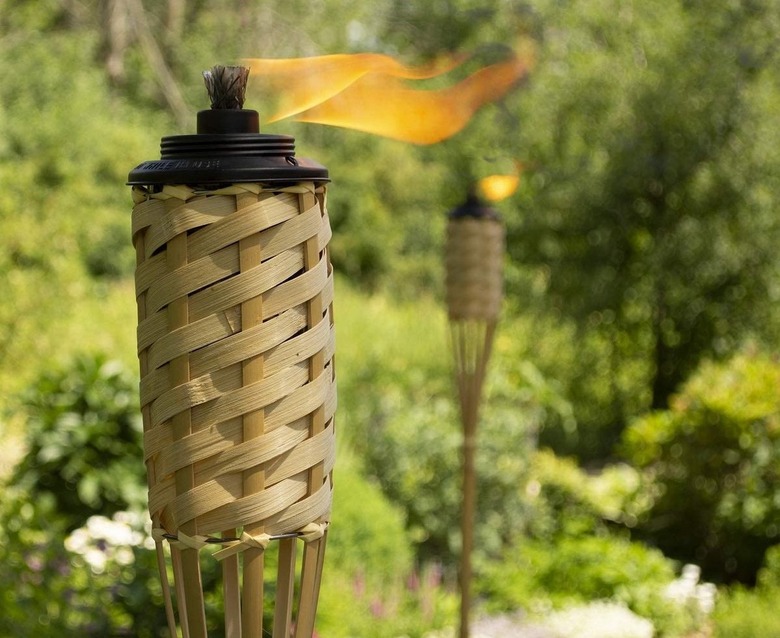Do Tiki Torches Need Special Oil?
We may receive a commission on purchases made from links.
Adding a few decorative tiki torches to your backyard probably isn't quite enough to transform your space into a tropical paradise, but it's a good start. Using tiki torches to create ambiance should be perfectly safe as long as you're vigilant about keeping torches and their flames away from anything flammable and as long as you use the right fuel to light them. There are a lot of viable tiki torch fuel options from which to choose depending on your price range and preferences.
Do You Need Special Fuel for Tiki Torches?
Do You Need Special Fuel for Tiki Torches?
Most tiki torches work using an oil reservoir and a fiberglass wick (as opposed to oil lamp wicks, which are generally made from cotton). Solar-powered tiki torches are also available and don't require oil, but they don't produce real flames and use LED light to create the appearance of flames instead.
There's no one specific fuel that you have to use in the oil reservoir. Several types and brands of tiki torch fuels are available, but you can also use lamp oil that's not specifically designed for tiki torches. You can even experiment with a DIY alternative that you probably already have in your medicine cabinet.
Oil Options for Tiki Torches
Oil Options for Tiki Torches
Commercially sold torch fuels are typically petroleum-based. Many people like using citronella-scented torch oil in their tiki torches because the odor repels mosquitoes. Manufacturers also use cedar, eucalyptus, and lemongrass scents in tiki torch fuels. "Unscented" fuel is also available, although it will still have a strong odor and generate a good deal of soot and smoke. Those are the downsides of most tiki torch fuels, though there are now clean-burn fuels available that promise to produce less odor and smoke.
Alternatively, paraffin lamp oil (also known as kerosene) can be used to light tiki torches. It's also made from refined petroleum but generally produces less odor than traditional tiki torch fuel.
For a DIY approach, some people use either vegetable oil or a mixture of isopropyl alcohol and distilled water as homemade tiki torch fuel, which is certainly cheaper than buying fuel specifically designed for a tiki torch. (While you're thinking about affordable DIY solutions, why not try making a DIY tiki torch using a steel pipe and a recycled glass bottle?)
Tiki Fuel Safety
Tiki Fuel Safety
Unless the manufacturer's directions tell you otherwise, you generally don't have to take special precautions with how you store tiki torch fuel or paraffin lamp oil. Keep it in a tightly sealed bottle away from direct sunlight and out of the reach of kids and pets. It can be kept in a garage or basement even if these spaces get very hot or very cold. Even if fuel freezes, it will still burn when it thaws.
Disposing of leftover torch fuel does require special handling. Unused torch fuel and/or lamp oil is considered hazardous waste, so it shouldn't be poured down a drain or thrown away in your trash can. Check with your municipality's waste services department for instructions on where to drop off hazardous waste, including torch fuel.
